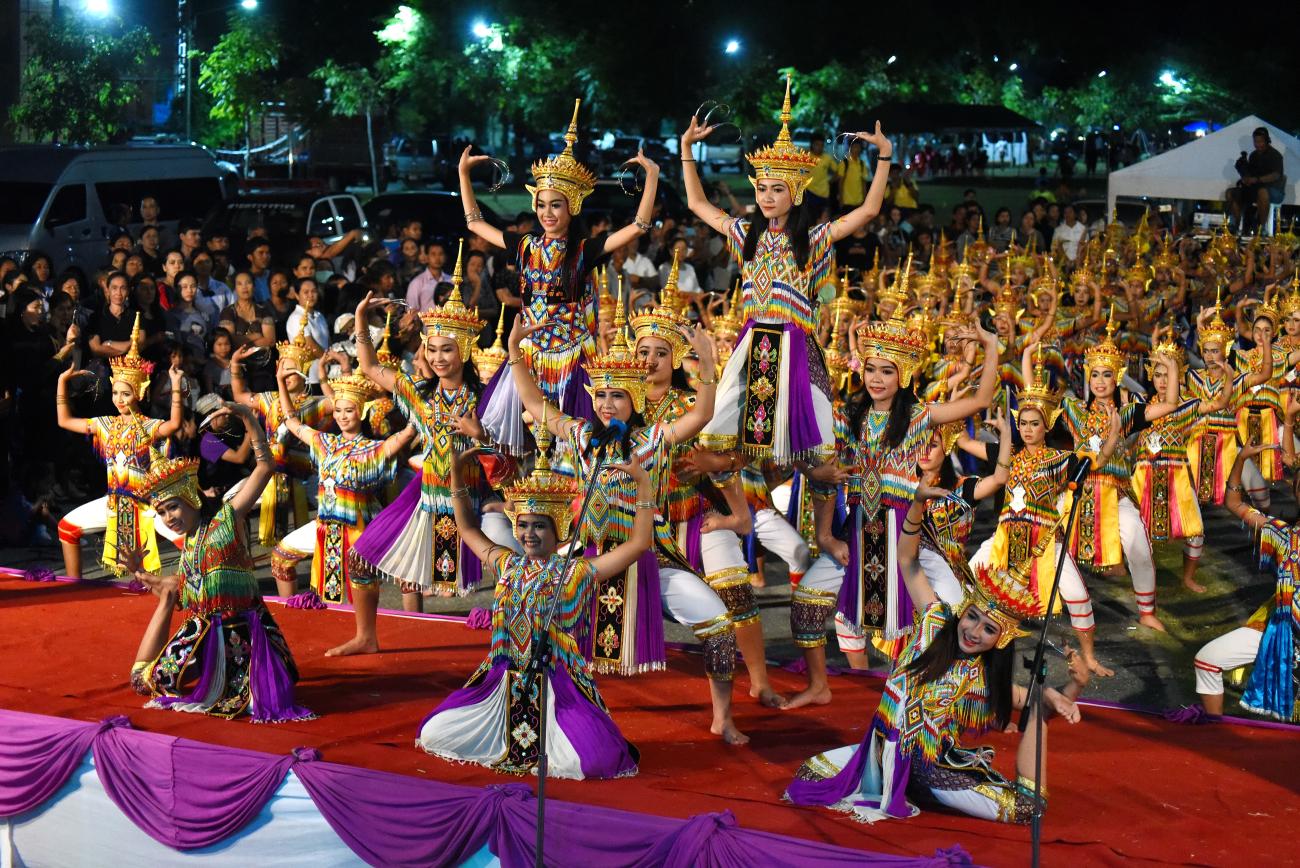Nora Inscribed in 2021 on the Representative List of the Intangible Cultural Heritage of Humanity.
Nora is a lively and acrobatic form of dance theatre and improvisational singing from southern Thailand. Performances normally include a long oral invocation, followed by a presentation by a lead character who dances with vigorous and elaborate movements of the legs, arms and fingers.
The performances are usually based on stories about the former lives of Buddha or about legendary heroes. An ensemble plays highly rhythmic and fast-paced music, with a traditional southern oboe providing the melody and strong rhythms produced by drums, gongs, cymbals and wooden clappers.
The main Nora performers – whether male or female – wear colourful costumes with crowns or headdresses, beads, bird-like wings tied around the waist, ornate scarves, and swan tails that give them a bird-like appearance. Performers also wear long, metallic fingernails that curl out from the fingertips. Nora is a community-based practice with deep cultural and social significance for the people of southern Thailand.
Performances use regional dialects, music and literature to reinforce cultural life and social bonds among local people. Over five hundred years old, Nora is performed in local community centres and at temple fairs and cultural events, and is passed on through training by masters in homes, community organizations and educational institutions.
Original article published on UNESCO
Click here to see more photos.



